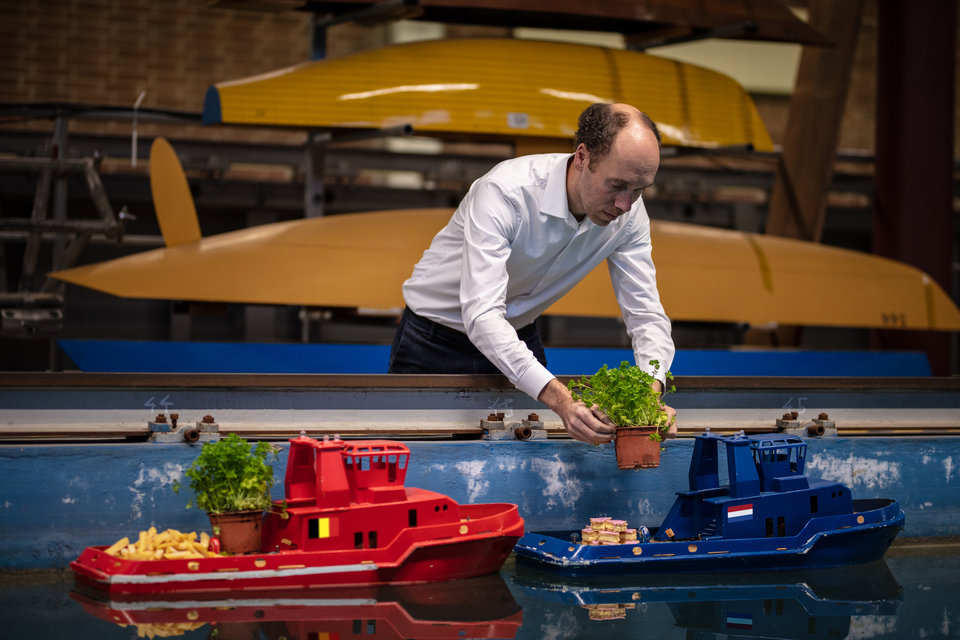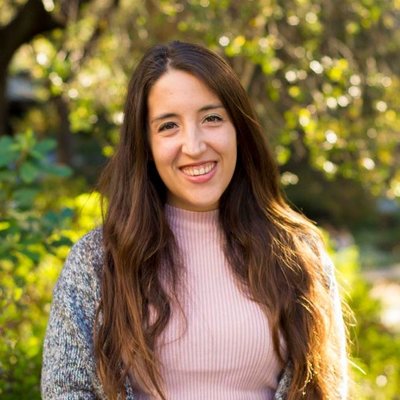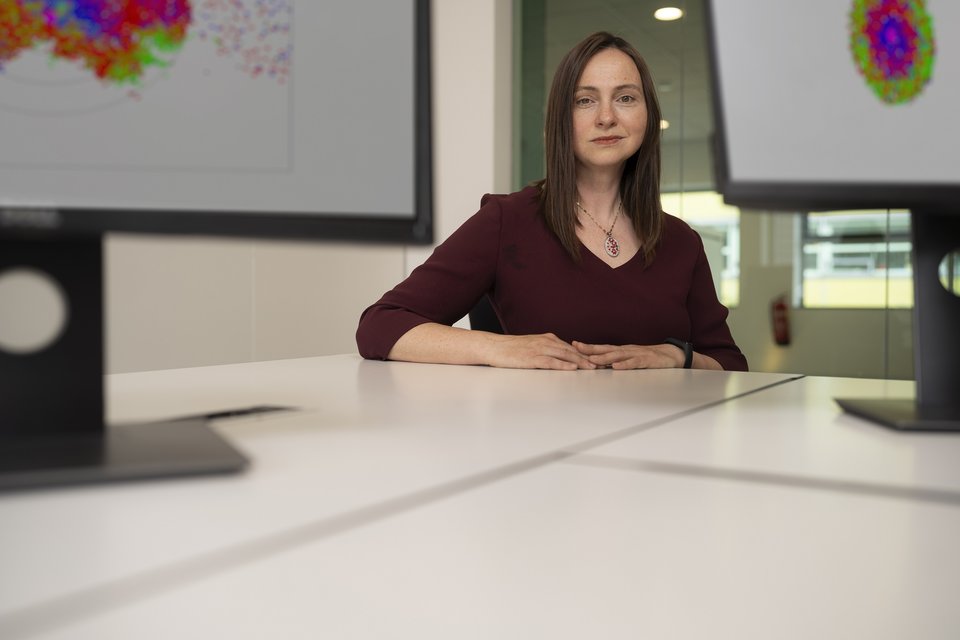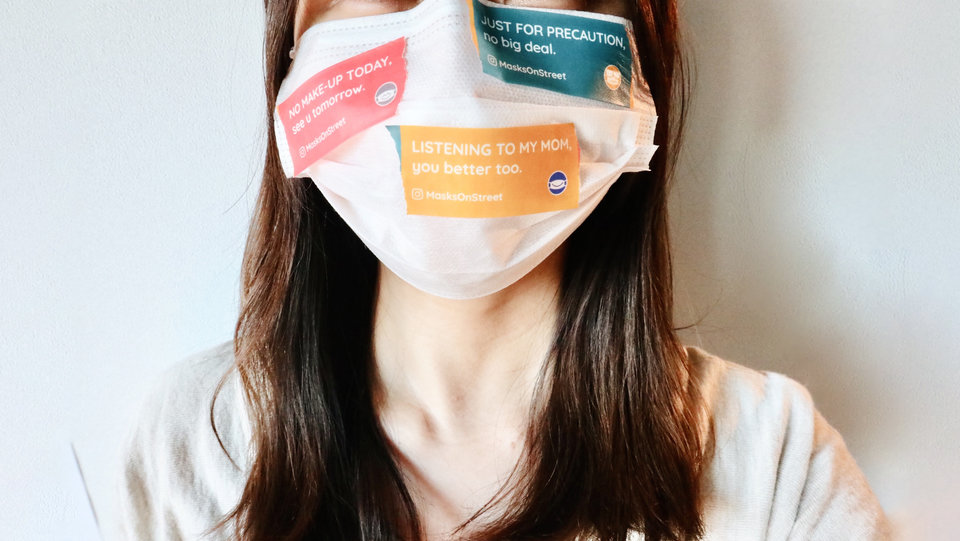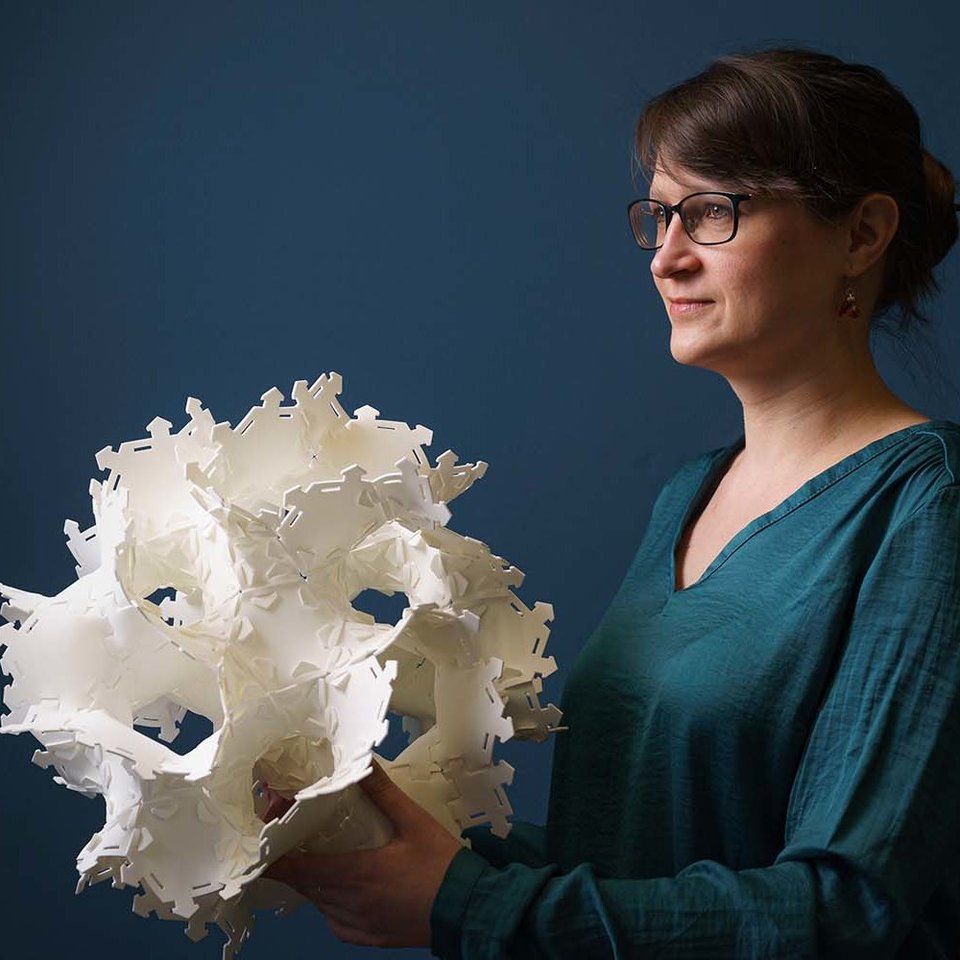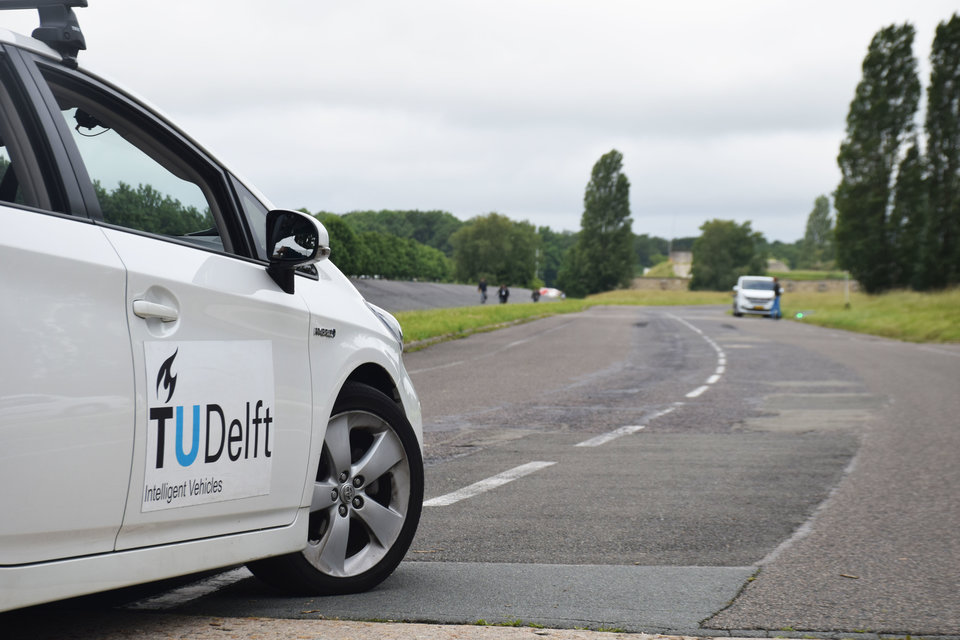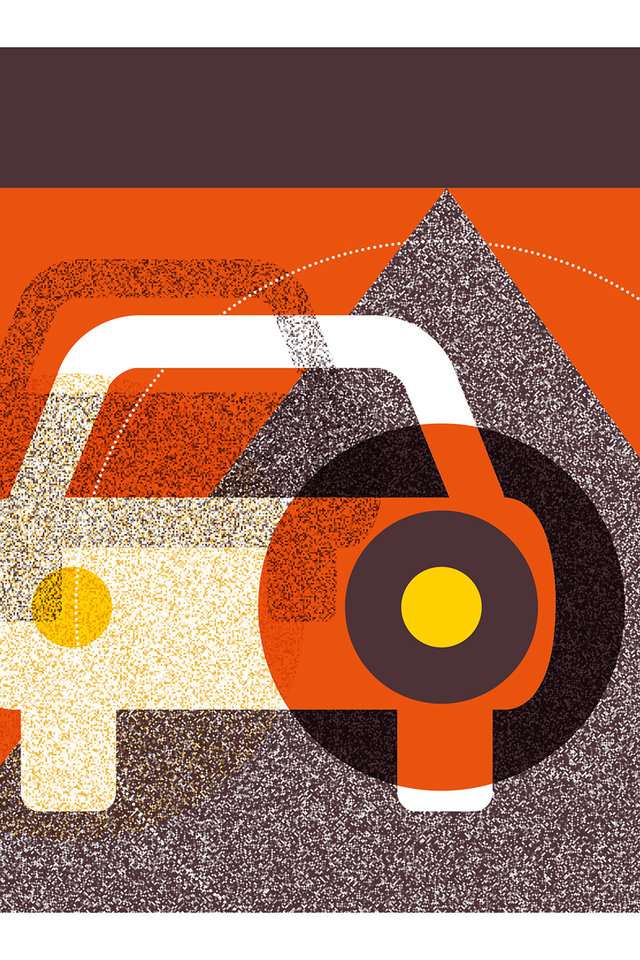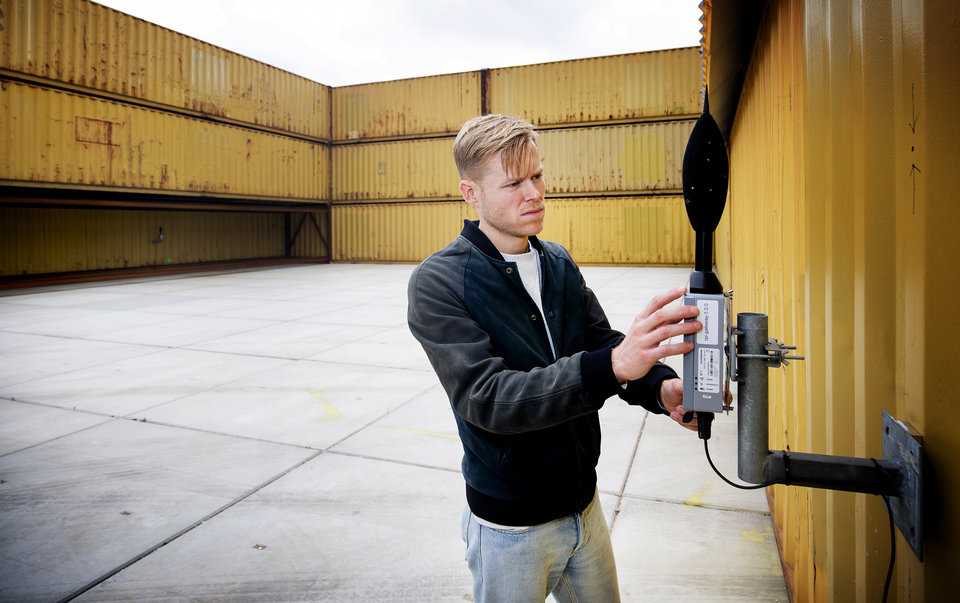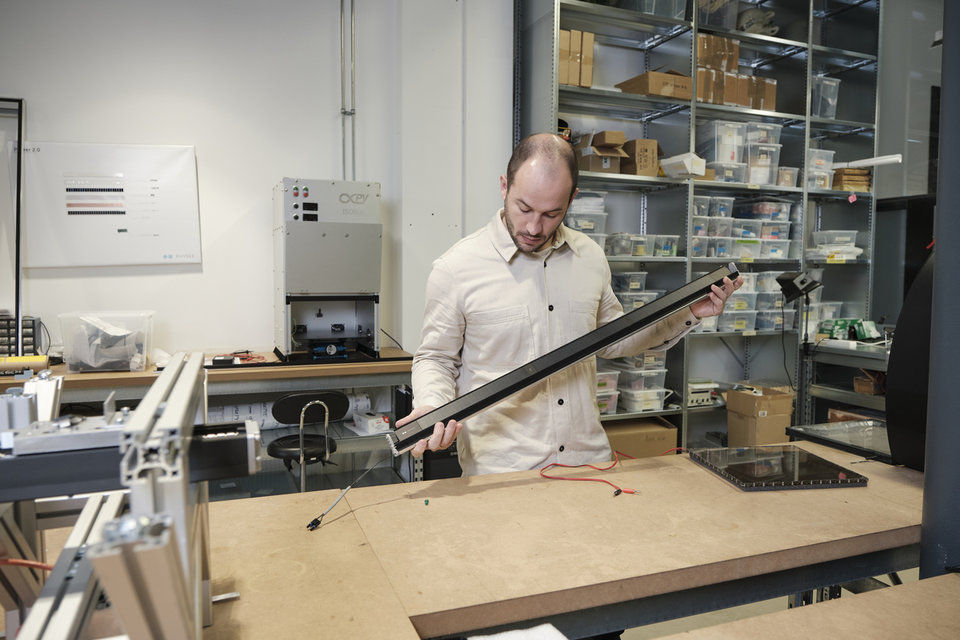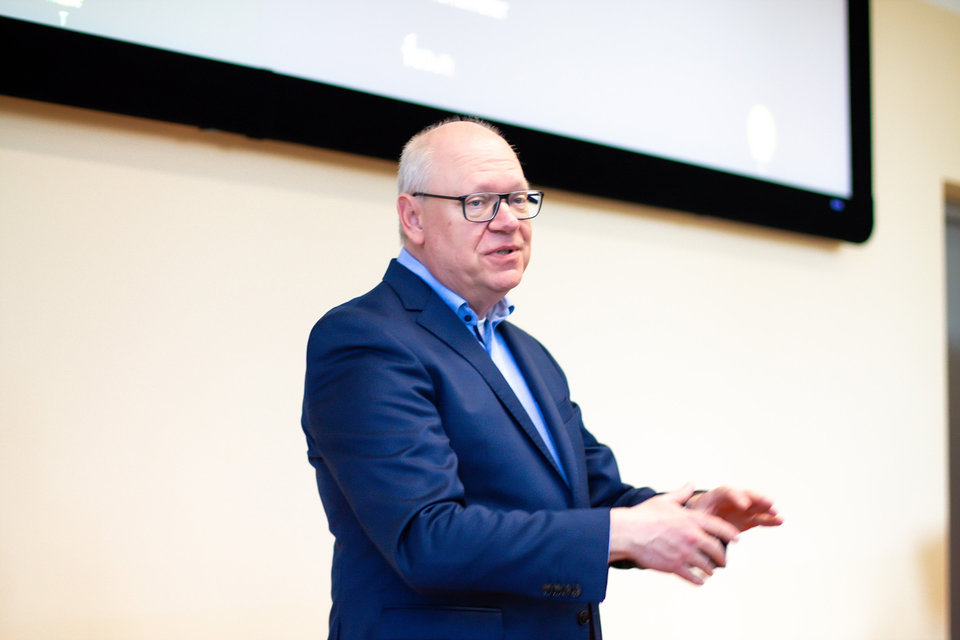Through a mental health app, people can seek help for advice for dealing with mental issues or on preventing them. Such an app is convenient, but not for everyone. Many apps target a limited audience or are poorly accessible to certain populations. Researcher Caroline Figueroa collaborates with 'excluded' groups to develop more inclusive apps. Her goal is to provide broader access and thereby healthcare that is more just.
Serious anxiety, symptoms of depression such as a gloomy mood and avoidance of daily activities and reliving unpleasant events. These are all examples of mental health issues. Our mental well-being plays a significant role in our functioning as humans, both as individuals and within society. However, there remains a taboo and stigma on this topic, Caroline Figueroa explains. "People find it difficult to talk about it, for example, because of shame and stigma. However, mental health disorders are very common: 1 in 5 people will experience a mental disorder such as depression or anxiety in their lifetime, ranging from mild to severe disorders."
Mental health apps
To address these issues, people can turn to the assistance of a mental health app. According to Figueroa, such an app can serve various purposes. "For example, an app can provide tips for restructuring your thoughts (seeing things in a new way), relaxation exercises, or pleasant activities (such as exercise or social activities). This aims to prevent symptoms from worsening. But an app can also indicate when someone should contact a professional. The threshold to use an app is lower than seeking a GP or psychologist. And you also don't have to deal with long waiting times. Further, using data from individuals’ smartphones and AI can lead to personalized mental health care"
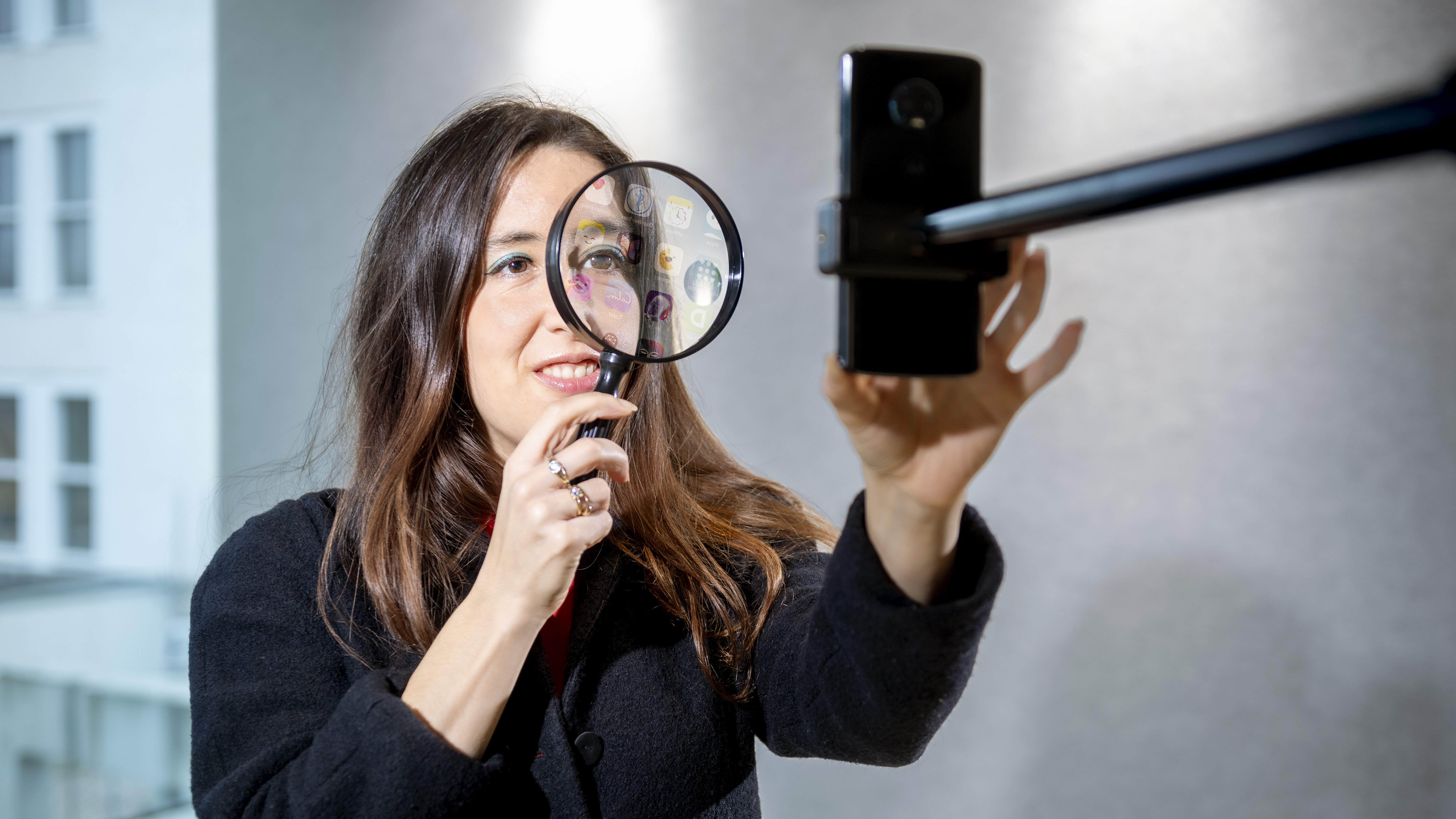
Thousands of apps available
As a researcher, Figueroa looks at the role of technology, such as apps, in preventing or minimising mental health problems. "Technological innovation can have a preventive effect so that people need fewer long-term treatments. This is also beneficial for the healthcare sector where costs are soaring." Worldwide, there are about 20,000 mental health apps available. "The problem is that the quality of these apps is not always great. For example, because the information is not supported by scientific research. Also, the user's privacy is not always guaranteed. Another problem - which I am particularly concerned with - is that many apps are not inclusive. This, inadvertently, excludes people or groups."
Lack of inclusivity
Not being inclusive means, for example, that an app is difficult to access for people with low digital skills or a non-Western background. Also, when providing tips and advice, apps might not consider the user's financial resources or cultural background. Figueroa: "The problem starts with the input of psychological research that app developers use. Scientists usually only look at a limited target group. The same happens when designing apps. App developers tend to target a group that resembles themselves: white, highly educated people with a good income. Ultimately, they also test the app on such a limited group."
Developing apps with youth
Figueroa works on various projects to better tailor mental health apps to a broader audience. One of them - as part of the Healthy Start Sprint Project 'Just-in-Time Adaptive Mechanisms' - takes place in the Schilderswijk neighbourhood of The Hague. "In this project, we collaborate with a community centre where many young people with a migration background gather. In brainstorming sessions, we inquire about their opinions on mental health apps and what they find important in them. The idea is to ultimately develop a new app together. Through co-creation sessions, the youngsters have already developed some ideas for the app's design themselves. In a new project we are now testing the use of Generative AI to function as an assistant to help youth with their physical and mental wellbeing."
Everyone is entitled to good healthcare, both physically and mentally. Yet, the groups that often need help the most are not heard or involved enough.
The importance of co-creation
The conversations with the youth have yielded some interesting insights, says Figueroa. "One of the eye-openers for me was the role of religion. Young people indicated that this could be an important mental support for them. Because I am not religious myself, I had not thought about this at all. As a researcher, I also have blind spots and biases. This demonstrates the importance of co-creation. We can incorporate religion into the app by, for example, including texts or tips about religion. This can also be applied more broadly for people with different beliefs or convictions."
Interest in mental health
Figueroa has been involved in mental health almost her entire research life. It started during her Medicine studies, where she conducted research on predicting depression based on brain activity. "I noticed that there was relatively little attention to mental disorders within the study. That's precisely why it appealed to me. Especially in combination with the knowledge that it's such a broad societal problem. After my Ph.D., I focused more on preventing mental problems. I did further research into this during my postdoc at the University of California in Berkeley."
The power of motivational messages
The focus of her postdoc research was on the use of mental health apps by people in vulnerable positions dealing with depression and diabetes. Figueroa: "I particularly looked at Latinos in the US who only spoke Spanish and were in a low socioeconomic position, a group that is rarely involved in research. Here, I first learned how valuable co-creation is. Just like in the Schilderswijk project, we developed an app together with the target group through co-creation. After the launch, users told us that they found much support from motivational messages, which they had developed together with the researchers. It felt like someone cared for them, even though they knew these messages were sent automatically. This research further fuelled my interest in inclusive design."
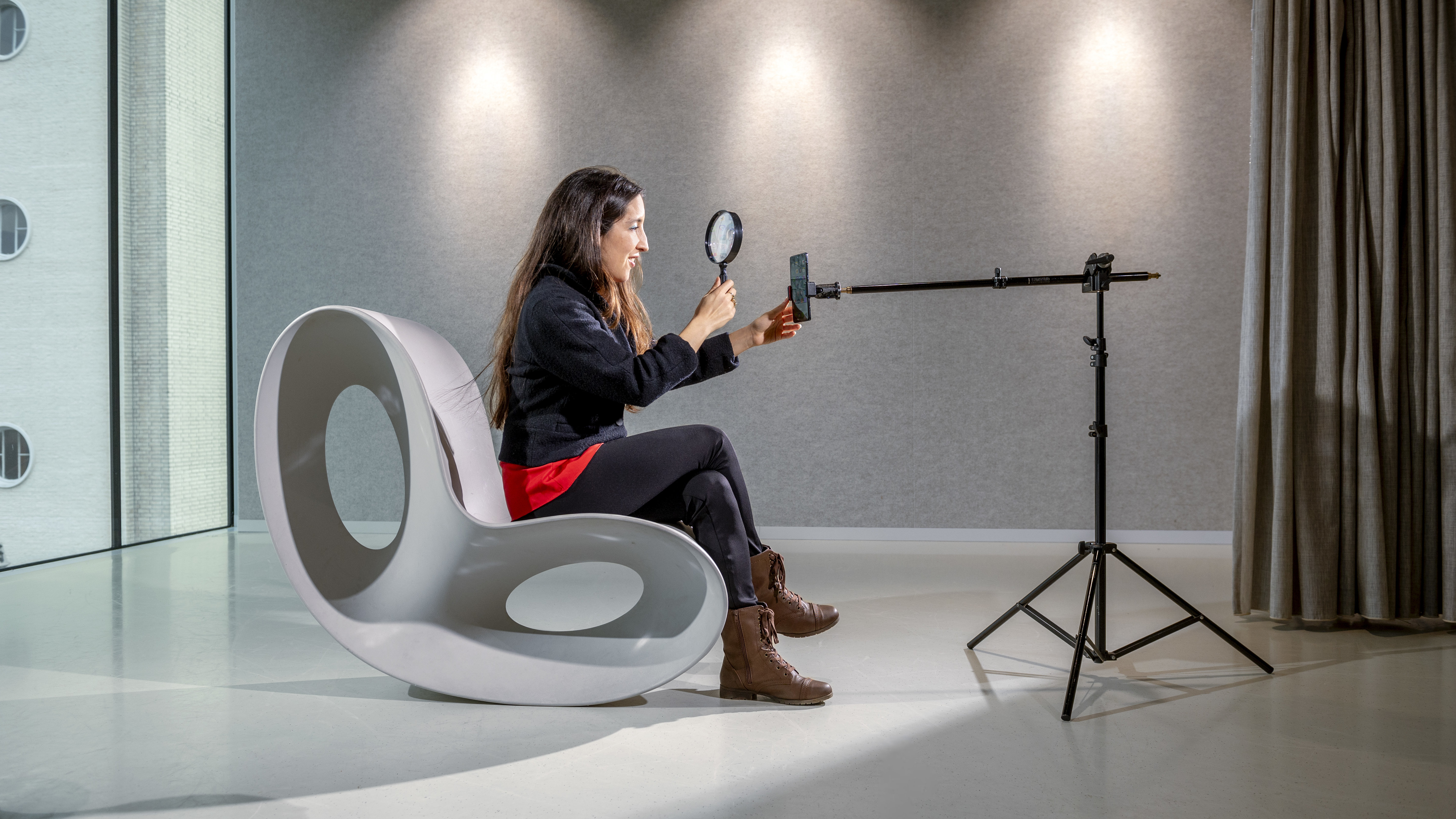
Struggle for justice
With her research, Figueroa hopes to destigmatise mental problems. But what motivates her just as much is the aspect of justice. "Everyone is entitled to good healthcare, both physically and mentally. Yet, the groups that often need help the most are not heard or involved enough. In education, science, technology, and the medical world, the topic of inclusivity and justice is unfortunately still underemphasized. I see it as my mission to change that. On the one hand, by developing apps that are inclusive, and on the other hand, by engaging in dialogues with stakeholders such as app developers, researchers, and healthcare professionals to identify and overcome obstacles."
In dialogue with stakeholders
According to Figueroa, such dialogues serve various purposes. "When it comes to science and technology, I share my insights on involving groups that are usually less engaged. Why is this so important? And how can it be done in the best way? It would be great if we could ultimately establish a series of guidelines for inclusive app design, including incorporating new developments in Artificial Intelligence. For example, how to ensure that there is no bias or discrimination in algorithms. With healthcare professionals, I try to understand the motives behind an insurer's decision whether or not to reimburse a certain app or a doctor's decision to prescribe an app. So, it really requires changes on different levels. It's challenging, but it also makes it very interesting and enjoyable."
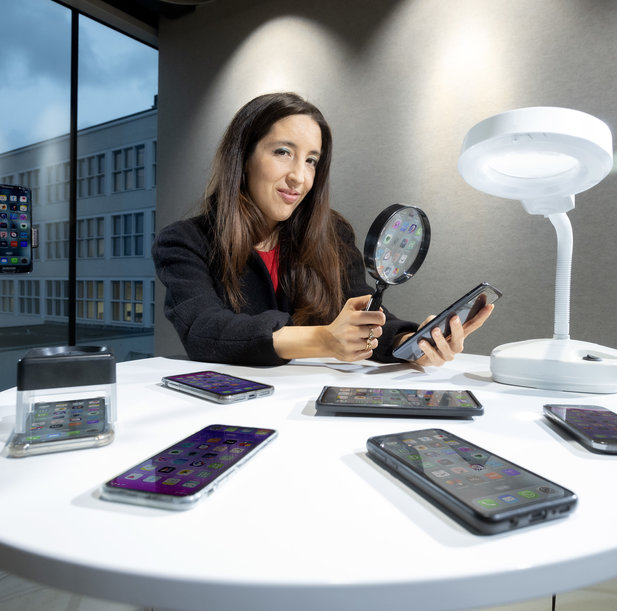
About Caroline Figueroa
Dr. Figueroa trained as a doctor and now works as an assistant professor of digital health at TU Delft. She focuses her research on developing and testing personalized digital healthcare solutions to help individuals live healthier lives. They focus on adapting these tools to the needs of underserved populations, such as people from ethnic or gender minority backgrounds, people with low incomes and people with challenging conditions. Among other things, she studies mobile apps that use artificial intelligence to help individuals support their mental health and increase their physical activity. They have methodologies for conducting digital health research based on social justice and feminist intersectionality.

